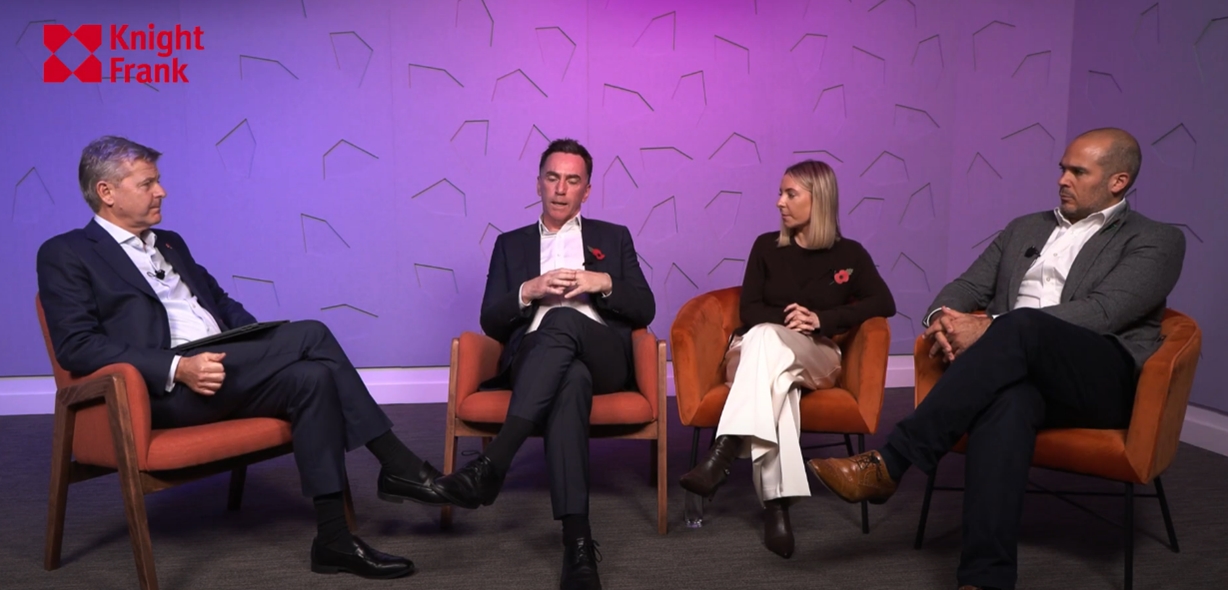The Budget, the Base Rate and the US election: your questions answered
We answer your questions on what the Budget, the Base Rate and the US election might mean for your UK property plans
4 minutes to read
The recent political and economic announcements have wide-reaching implications for the UK economy, but how do they impact the property market? Our experts met for an interesting and informative discussion on what recent changes announced in the UK budget, coupled with the Bank of England’s decision to cut the base rate and the election of Donald Trump in the US mean for the UK property market, whether you’re looking to sell, let or buy a residential property, or remortgage in the coming months. We covered the various tax measures set out by the Chancellor, as well as the trajectory of mortgage rates and property prices. Watch the full 45-minute conversation on YouTube here.

We’ve also compiled this handy Q&A to answer the most frequently asked questions we’ve received since the announcements were made.
Do you anticipate a higher rate of residential property sales in 2025? Or will the outcomes of the US election and the Budget act as a drag on the market?
We expect transactions to continue to edge higher compared to 2022 and 2023, when higher borrowing costs and double-digit CPI acted as a drag on demand. The trajectory for the bank rate is downwards and a more settled economic backdrop (provided the Budget proves relatively successful) means transactions will pick up, although a marked increase is unlikely against a backdrop of more sluggish economic growth.
Do the recent economic and political announcements point to a buyers’ market or a sellers’ market being more likely as we head into 2025?
There is more upwards pressure on mortgage rates now than before the Budget due to the government’s borrowing and spending plans.
That, in turn, will slow the recent period of house price growth. Needs-driven markets will be less affected but together with the succession of other tax changes, there will be a greater impact on higher-value markets. Sellers will therefore need to remain aware of this price sensitivity and realistic in setting asking prices.
What regional differences, in any, do you anticipate within the property market across the country, as a result of the Budget and US election?
Geographical differences should be less noticeable than differences between different price bands, as referred to above.
I am looking to sell my home soon, and feel I should wait until the Spring, would you concur?
We don’t expect house prices to fall between now and next spring and the decision on timing will vary with each individual case. We don’t expect any meaningful movement in mortgage rates either over the next few months. Demand will be stronger due to seasonality and the fact there is a stamp duty holiday deadline at the end of March but we don’t expect any material change in macroeconomic conditions.
How has the new Budget affected me as a first-time buyer looking to buy in London within the next year?
If you buy after April 2025, you will potentially be liable to pay an extra £6,250 in stamp duty, as the nil rate band reverts to where it was before the Conservative Party lowered it.
What are the ramifications of the Budget on second / third home ownership?
You will now have to pay 5% stamp duty instead of 3% for second homes. Your capital gains tax bill upon selling will remain the same.
Are we expecting property prices to rise significantly if mortgage rates are expected to be flat over the next few years?
We expect low single-digit growth each year over the next several years, due to the more challenging inflation and rate environment. Swap markets will already have factored in what they think the pace of decline will be for the bank rate and will vary according to economic news that suggests their assumptions are right or wrong, such as employment data.
To what extent are you seeing overseas/second home buyers citing the stamp duty changes as being of significant concern in their buying decisions?
To date, it hasn’t been cited as a significant concern. It’s a one-off entry cost and the fact Capital Gains Tax has remained the same for residential property is a positive.
What impact does the Budget have on the buy-to-let market? Will an exodus of landlords lead to higher rents in London?
The Budget, but more so the Renter’s Rights Bill, could see more landlords exit the sector although many who planned to leave have already done so. Those that have stayed have benefitted from strong rental value increases in recent years. If supply falls further, that will put more upwards pressure on rents and this would be an unwelcome and unintended consequence of the legislation for tenants.
What effect will VAT on private schools have on the UK property market?
It is one of a number of taxes that will potentially act as a drag on demand in higher-value markets. As the government targets the private sector more aggressively to fund the public sector, so it will adapt and one consequence could be that house prices near top-rated state schools increase disproportionately.
If you’d like to hear more about the implications of the budget on UK property, why not listen to our recent podcast episode, “Britain’s Budget pain: What it means for house prices and high streets” here